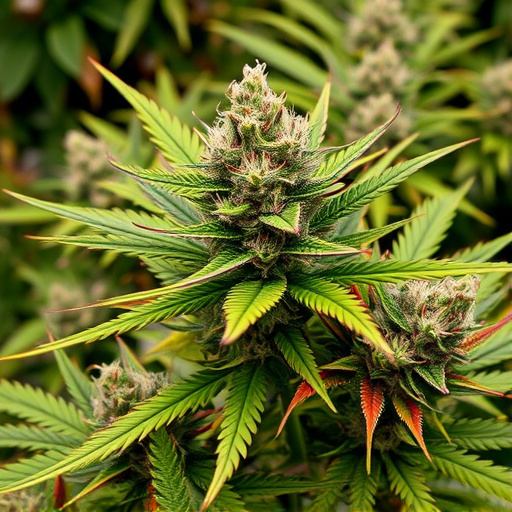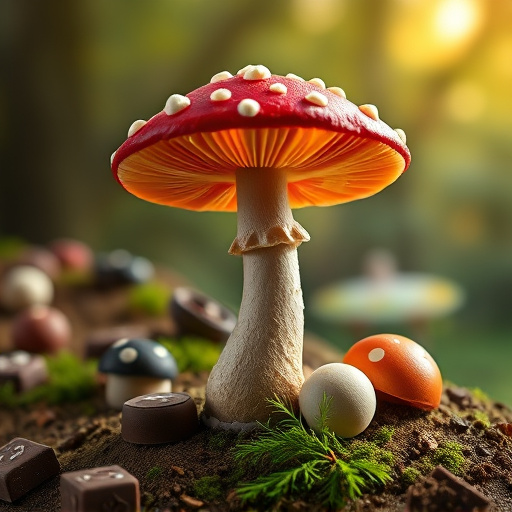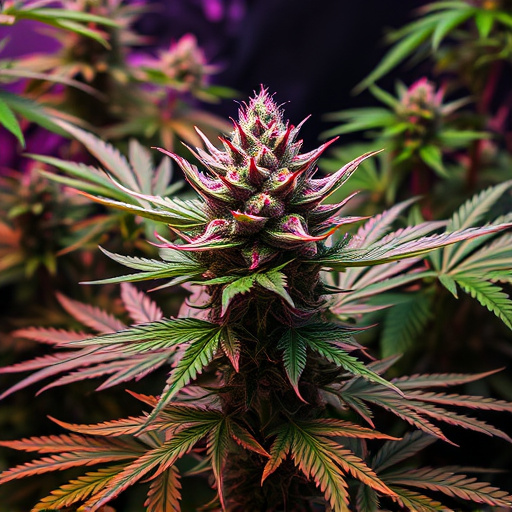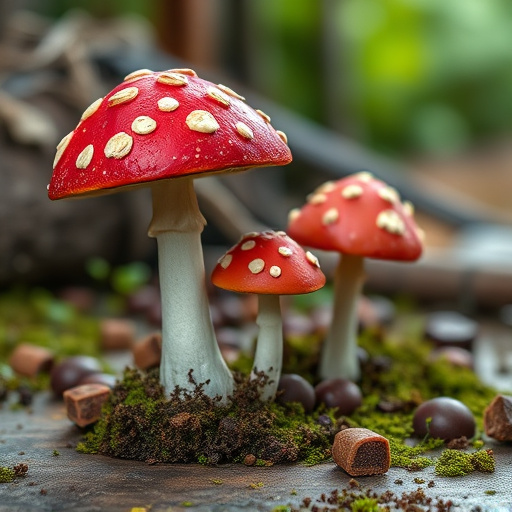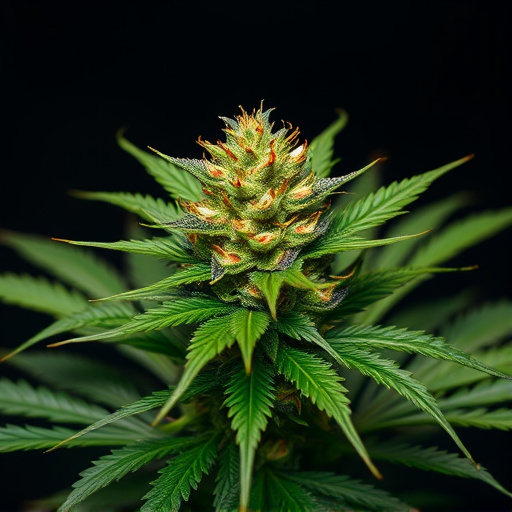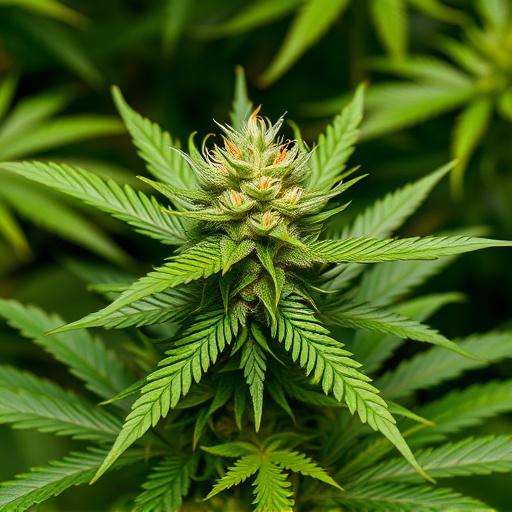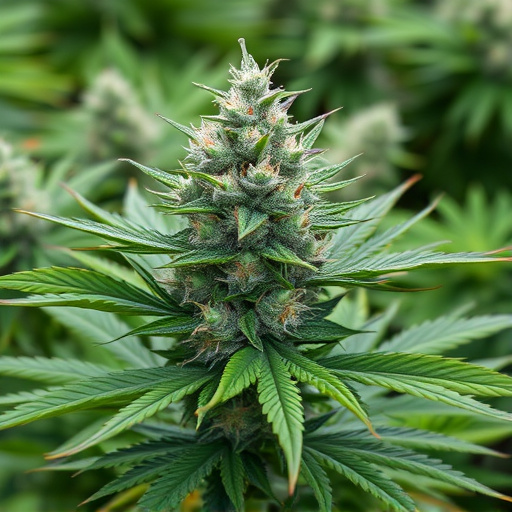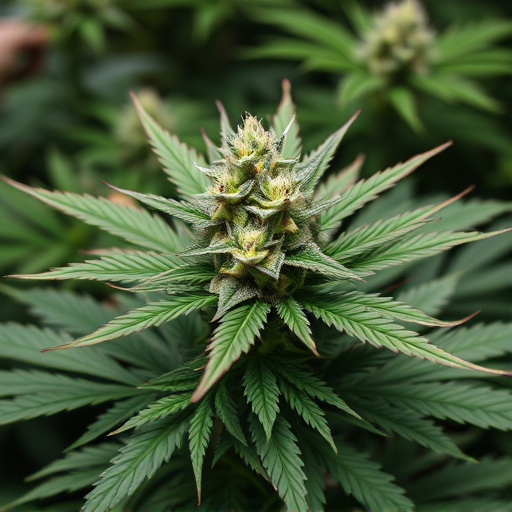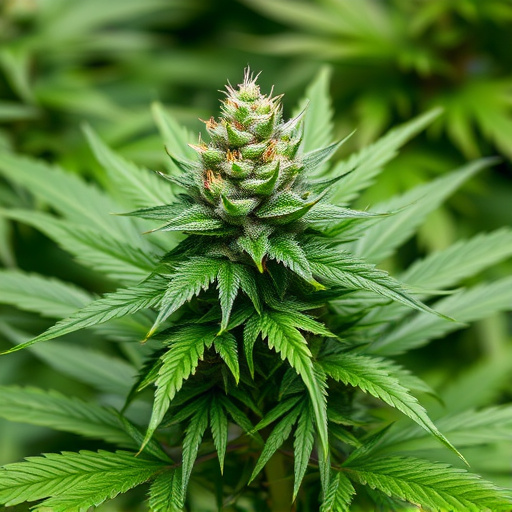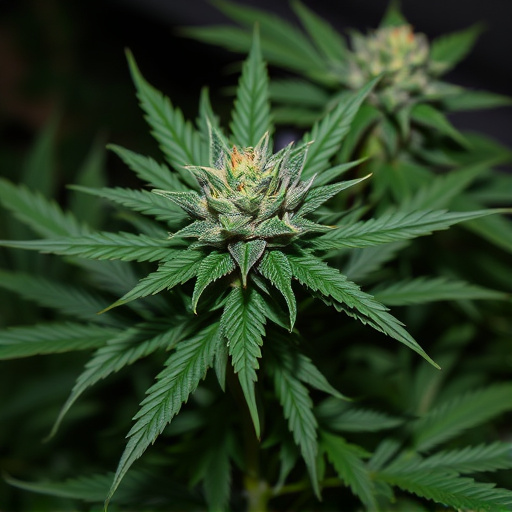Cannabis sativa strains interact with the body's endocannabinoid system, affecting dopamine and serotonin systems. THC enhances dopamine activity, leading to pleasure and reward feelings, while also interacting with serotonin receptors. These interactions explain cannabis' diverse effects, from euphoria and heightened senses to mood and cognition changes, depending on the strain and individual user.
Cannabis has long been known for its effects on the mind, but understanding how it interacts with brain chemicals like dopamine and serotonin remains crucial. These neurotransmitters regulate mood, pleasure, and motivation, playing a central role in our well-being. In this article, we delve into ‘cannabis sativa strains’ and their impact on dopamine and serotonin levels, exploring the science behind potential effects on mental health and offering insights for those curious about this growing field of research.
- Understanding Dopamine and Serotonin: The Brain's Chemical Messengers
- Cannabis and Its Impact on Dopamine and Serotonin Levels
- Exploring the Effects of Cannabis Sativa Strains on Neurotransmitters
Understanding Dopamine and Serotonin: The Brain's Chemical Messengers
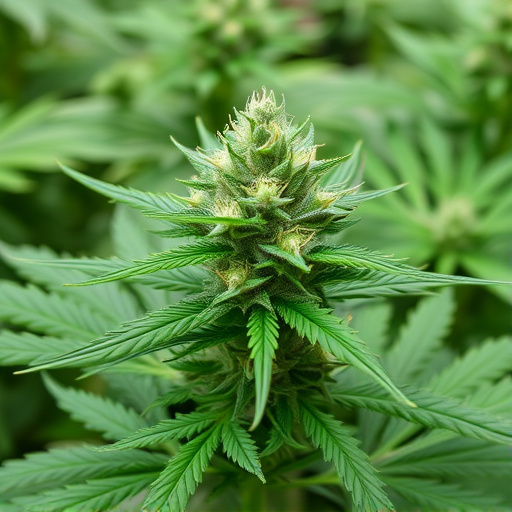
Dopamine and serotonin are neurotransmitters, or chemical messengers, that play a crucial role in various brain functions, including motivation, reward, mood regulation, and sleep. These chemicals help transmit signals between neurons, influencing our emotions, behaviors, and overall well-being. When we experience pleasure, such as eating a delicious meal or achieving a personal goal, dopamine is released, creating feelings of satisfaction and reinforcement. Similarly, serotonin contributes to maintaining emotional balance and regulating appetite, sleep, and cognitive functions.
Cannabis sativa strains contain compounds known as cannabinoids, notably THC (tetrahydrocannabinol) and CBD (cannabidiol), which interact with the endocannabinoid system in our bodies. THC has been shown to affect both dopamine and serotonin systems. It binds to dopamine receptors, enhancing the effects of dopamine and potentially leading to increased feelings of pleasure and reward. On the other hand, THC also interacts with serotonin receptors, although its exact mechanism is still being studied. Understanding these interactions offers insights into why cannabis can produce a range of effects, from euphoria and heightened senses to changes in mood and cognition, depending on the strain and individual user.
Cannabis and Its Impact on Dopamine and Serotonin Levels
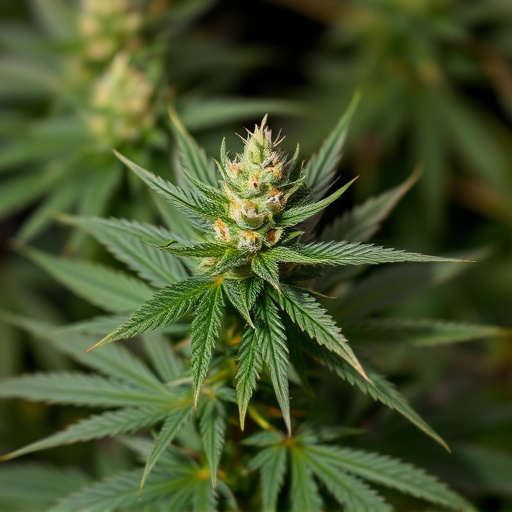
Cannabis, particularly cannabis sativa strains, has been shown to interact with the brain’s dopamine and serotonin systems. These neurotransmitters play a crucial role in regulating mood, motivation, pleasure, and sleep. When cannabis is consumed, its compounds can bind to specific receptors in these systems, leading to various effects on brain chemistry.
Dopamine levels may increase due to cannabis’s ability to block the reuptake of this neurotransmitter, prolonging its effects and enhancing feelings of pleasure and reward. Serotonin, on the other hand, is affected by cannabis through indirect means, as it influences serotonin receptors and can modulate serotonin release. This interaction contributes to the complex experience of using cannabis, which may include heightened senses, altered perceptions, and changes in mood.
Exploring the Effects of Cannabis Sativa Strains on Neurotransmitters
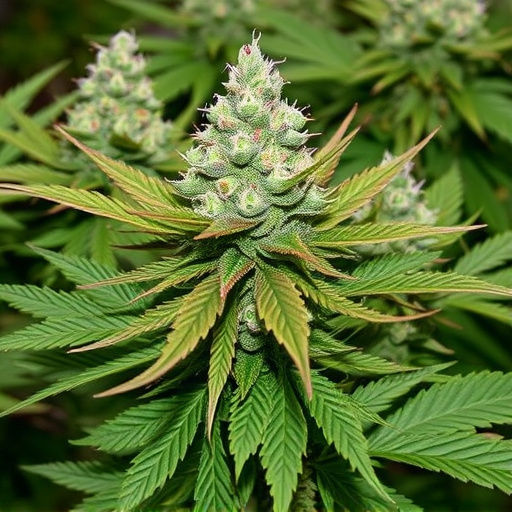
Cannabis has long been known for its impact on the brain’s reward system, but understanding how it specifically affects neurotransmitters like dopamine and serotonin is a fascinating area of study. Research into cannabis sativa strains reveals complex interactions with these chemicals. When consumed, certain compounds in cannabis, such as THC and CBD, can bind to receptors in the brain that regulate mood, motivation, and pleasure. For example, THC’s activation of CB1 receptors can increase dopamine release, leading to feelings of euphoria and reinforcement of rewarding behaviors.
However, the effects go beyond dopamine. Serotonin levels are also influenced by cannabis consumption. Some studies suggest that CBD may help regulate serotonin synthesis and reuptake, potentially offering therapeutic benefits for conditions like anxiety and depression. Different cannabis sativa strains exhibit varying ratios of THC to CBD, which can significantly impact these neurotransmitter systems, making personalized choices based on desired effects crucial for users seeking relief or enhanced well-being.
In understanding how cannabis affects dopamine and serotonin, we uncover a complex interplay that varies based on cannabis sativa strains. Research suggests specific compounds in these strains can modulate neurotransmitter levels, offering potential therapeutic benefits for various conditions. As the study of cannabis continues to evolve, exploring the unique effects of different strains is crucial for harnessing their full potential while ensuring safe and responsible use.
